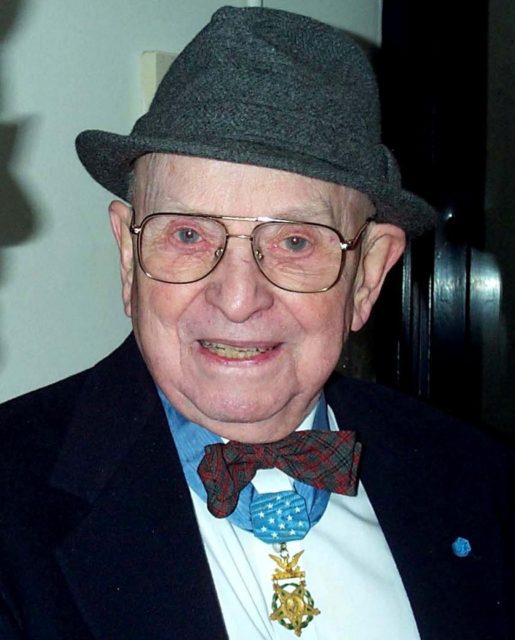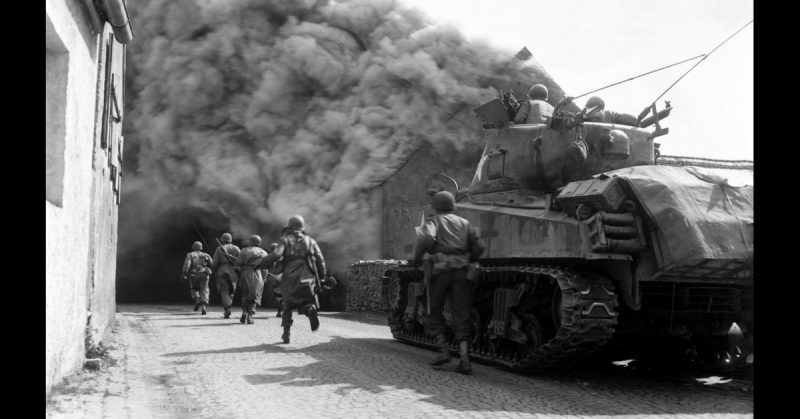Often in combat NCOs and Officers find themselves in a situation where they have to lead by example. Ordering a young private to charge a machine-gun nest is one thing – to lead the charge is quite another. Many men who have fought in war speak of the need to come to terms with death to do the job effectively. However, to attack an enemy alone not once but twice is unusual. Such was the case for Nicholas Oresko.
Road to Glory
Nicholas Oresko was born on January 18, 1917, in Bayonne, New Jersey to Ukrainian immigrant parents. In March 1942, he enlisted in the US army.
He served in a variety of garrison duties, before being sent to France in September 1944 three months after the Normandy landings. By then a platoon sergeant with Company C, 1st Battalion, 302nd Infantry Regiment, 94th Infantry Division, he spent the following months fighting pockets of German resistance left behind during the Allied advance. In December his division became part of General Patton’s Third Army as they advanced into Germany.
For Oresko, it was a cold January day in 1945 when he came to terms with certain death for the sake of leading his men and accomplishing their mission. Outside the German town of Tettingen, Master Sergeant Oresko was faced with leading his men into open fields swept by German machine-gun fire. For days the concealed enemy positions had slowed the Allied advance incurring massive casualties.
A Solo Charge
On the afternoon of January 23, Oresko received orders his unit would be moving out against the German positions. The plan was to attack at dusk but, unlike previous attempts where the area had been bombarded with an artillery barrage, that night they were to use the element of surprise. Oresko prepped his men.

When the time came to advance, and under the cover of darkness, Oresko gave the order to move out but not a man moved. Again repeating the order, his men remained motionless, frozen in their fear. Recognizing the futility of continuing to bark orders, Oresko realized he had to go himself and charged forward. Out into the snow-covered field, Oresko advanced without incident accepting he could be killed at any moment. Perhaps out of guilt, duty, or inspiration when Oresko was some 50 to 75 yards ahead his men began to follow him.
Oresko continued to advance braving the deadly German machine-gun fire all around him. He made it to the enemy bunker and tossed in a grenade then fired his rifle killing all the defenders.
Suddenly he fell and felt the warm sensation of blood running down his leg. Perhaps it was his final moment.
And Again
Crawling underneath the gunfire, Oresko felt the tension of a trip wire against his helmet that set off an explosion above him. Fortunately, his low profile to the ground meant the shrapnel missed him. The Germans likely thought the explosion had killed him, but Oresko launched a grenade into another enemy machine-gun bunker that was pinning down and terrorizing his men. Oresko jumped in after the blast killing the remaining occupants at point-blank range with his rifle.
The soldier had set out alone to inspire his men but in fact accomplished the mission alone. He had destroyed two enemy bunkers and killed 12 soldiers. Weak from loss of blood he was evacuated but due to his outstanding valor he had achieved the objective with minimum casualties, and the Allies proceeded to advance.
For his actions that day, Nicholas Oresko was awarded both the Medal of Honor and the respect of his men.
